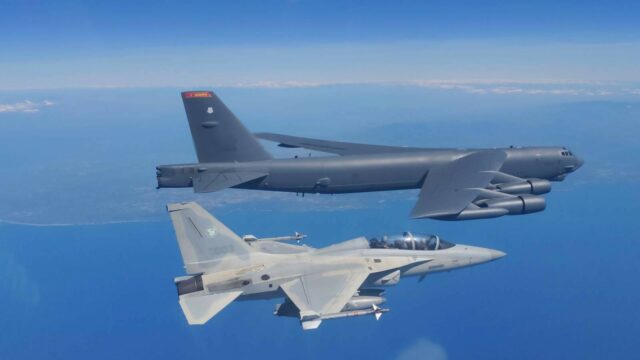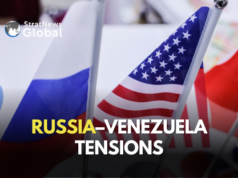The Philippines has rejected China’s comments that conducting joint patrols with the U.S. forces constitutes stirring up trouble.
“Our engagements with the United States are well within our rights as a sovereign and independent nation, aimed at promoting maritime security and upholding international law. We reject any assertion from other countries that seeks to undermine our legal and legitimate activities,” Eduardo M Año, the National Security Adviser said.
The Philippines government added that the joint exercise conducted by the Philippine Air Force (PAF) and the United States Pacific Air Force (PACAF) is lawful and was conducted inside Philippines territory.
The Chinese government yesterday rebuked the Philippines and said that Manila “stirs up trouble” by holding joint air patrols with “extraterritorial countries”. The Chinese government added that it had coordinated its frontline naval and air forces to closely monitor the situation.
Beijing has claimed sovereignty over almost the entire South China Sea. Ties between both the countries nosedived after Manila started to expand its longstanding defence partnership with the United States.
The Philippine Air Force announced on February 19 that three of its FA-50 light fighter jets and a U.S. Air Force B-52H heavy bomber launched an air patrol “within the country’s exclusive economic zone.”
This is a sharp contrast to Philippines refraining joint air and sea exercises in the South China Sea under the former president Rodrigo Duterte, who advocated closer relations with Beijing.
Over the past 20 years, China has systematically claimed control of more areas in the region by reinforcing new maps with concrete signs of its claim – building on rocks and islets and expanding its military facilities on these man-made outposts.
This region is a major shipping route with over 21% of global trade, moving through the waters. It is strategically important and is home to rich fishing grounds that provide for the livelihoods of millions of people across the region.
In a career spanning three decades and counting, Ramananda (Ram to his friends) has been the foreign editor of The Telegraph, Outlook Magazine and the New Indian Express. He helped set up rediff.com’s editorial operations in San Jose and New York, helmed sify.com, and was the founder editor of India.com.
His work has featured in national and international publications like the Al Jazeera Centre for Studies, Global Times and Ashahi Shimbun. But his one constant over all these years, he says, has been the attempt to understand rising India’s place in the world.
He can rustle up a mean salad, his oil-less pepper chicken is to die for, and all it takes is some beer and rhythm and blues to rock his soul.
Talk to him about foreign and strategic affairs, media, South Asia, China, and of course India.





